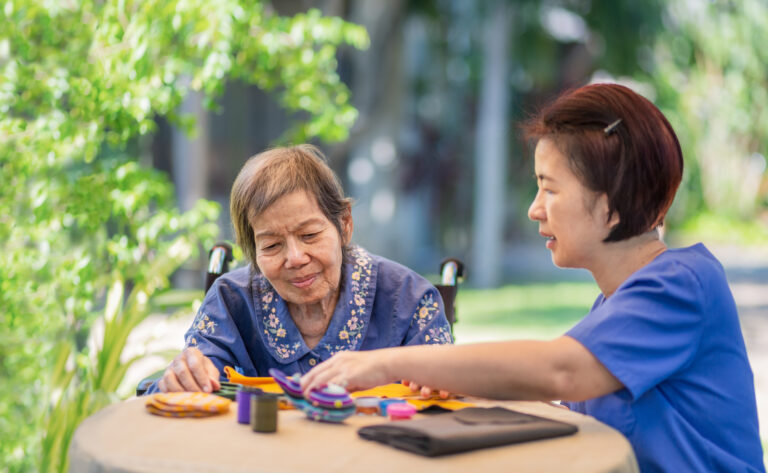Aromatherapy is a practice that uses natural plant extracts, especially essential oils, to promote health and well-being. People have used it for centuries to help with relaxation, sleep, and mood. In recent years, scientists have started to look at whether aromatherapy might help people with Alzheimer’s disease, a condition that affects memory, thinking, and behavior. This article explores what we know so far, what the research says, and what experts think about using aromatherapy for Alzheimer’s.
## What Is Alzheimer’s Disease?
Alzheimer’s disease is a brain disorder that gets worse over time. It is the most common cause of dementia, which means it affects memory, thinking, and the ability to do everyday tasks. People with Alzheimer’s may forget recent events, have trouble finding words, get lost in familiar places, and experience changes in mood and behavior. There is no cure for Alzheimer’s, but treatments can help manage symptoms and improve quality of life.
## What Is Aromatherapy?
Aromatherapy involves breathing in or applying essential oils from plants. These oils are made from flowers, leaves, bark, or other parts of plants. Common oils used in aromatherapy include lavender, rosemary, peppermint, and lemon. People use them in diffusers, massage oils, or even in baths. The idea is that the smell of these oils can affect the brain and body, helping with relaxation, sleep, or mood.
## Can Aromatherapy Help with Alzheimer’s?
Some studies suggest that aromatherapy might help people with Alzheimer’s, but the evidence is not strong enough to say for sure. Most research has looked at how aromatherapy affects mood, sleep, and behavior, rather than memory or thinking.
**Memory and Thinking**
There is some interest in whether certain smells, like rosemary, might help with memory. Rosemary contains a compound called carnosic acid, which has antioxidant and anti-inflammatory properties. In laboratory studies, carnosic acid has shown promise in protecting brain cells and reducing some of the damage seen in Alzheimer’s[1]. Some small clinical studies suggest that the smell or extracts of rosemary might improve short-term memory and attention, but these studies are limited and more research is needed[1]. There is no strong evidence that aromatherapy can stop or reverse Alzheimer’s, but it might offer some support for brain health.
**Mood and Behavior**
People with Alzheimer’s often experience agitation, anxiety, and sleep problems. Some studies have looked at whether aromatherapy can help with these symptoms. For example, one study used a blend of essential oils in massage and found it helped improve sleep in people with sleep disorders, though not specifically Alzheimer’s[2]. Another study combined music therapy with aromatherapy and found some benefits for sleep and relaxation[2]. These studies suggest that aromatherapy might help with mood and behavior, but they do not prove it can treat the underlying disease.
**Sleep**
Sleep problems are common in Alzheimer’s. Some research has explored multi-sensory stimulation, which includes aromatherapy, to help with sleep. For example, one study used a combination of music, massage, and aromatherapy in a calming environment and found it helped improve sleep quality[2]. Again, these studies are small and more research is needed to know if aromatherapy alone can help with sleep in Alzheimer’s.
## What Do Experts Say?
Most experts agree that aromatherapy is generally safe when used properly, but it should not replace medical treatment for Alzheimer’s. While some studies show possible benefits for mood, sleep, and relaxation, there is not enough evidence to say that aromatherapy can improve memory or slow the progression of Alzheimer’s[1][3]. Scientists caution that aromatherapy is not a cure and should be used as a complementary therapy, not a main treatment[3].
## How Is Aromatherapy Used?
If someone wants to try aromatherapy for Alzheimer’s, it is important to talk to a doctor first. Essential oils can be strong and may cause allergic reactions or interact with medications. Common ways to use aromatherapy include:
– **Diffusers:** Adding a few drops of essential oil to a diffuser to spread the scent in a room.
– **Massage:** Mixing essential oils with a carrier oil (like coconut or almond oil) and using it for gentle massage.
– **Baths:** Adding a few drops of essential oil to a warm bath.
It is important to use high-quality, pure essential oils and to follow safety guidelines. Some oils can be irritating to the skin or harmful if swallowed.
## What Does the Future Hold?
Researchers are continuing to study aromatherapy and other natural remedies for Alzheimer’s. There is interest in compounds like carnosic acid from rosemary, which have shown promise in laboratory studies[1]. However, turning these findings into effective treatments will take more research and clinical trials.
## Key Points to Remember
– **Alzheimer’s disease** is a serious brain disorder with no cure, but treatments can help manage symptoms.
– **Aromatherapy** uses essential oils to promote relaxation, sleep, and mood.
– **Some studies** suggest aromatherapy might help with mood, sleep, and behavior in people with Alzheimer’s, but the evidence is limited[2].
– **Rosemary and its compounds** have shown some promise in protecting brain cells in laboratory studies, but more research is needed in humans[1].
– **Aromatherapy is not a cure** for Alzheimer’s and should not replace medical treatment[3].
– **Always talk to a doctor** before trying aromatherapy, especially for someone with Alzheimer’s.
## Final Thoughts
Aromatherapy is a gentle, natural approach that might help some people with Alzheimer’s feel more relaxed or sleep better. While it is not a cure, it could be a helpful addition to other treatments. Scientists are still learning about how aromatherapy works and whether it can truly help with Alzheimer’s. For now, it is best to use aromatherapy carefully and as part of a broader care plan, under the guidance of a healthcare professional.
[1] [2] [3]





